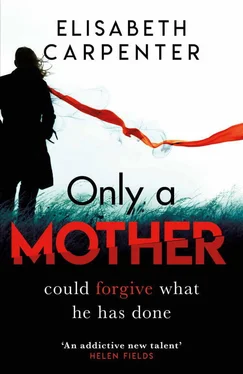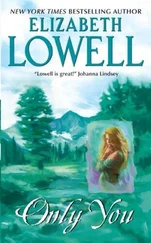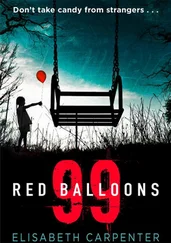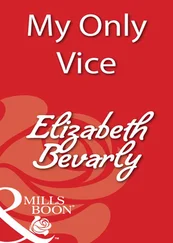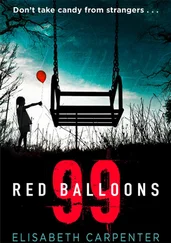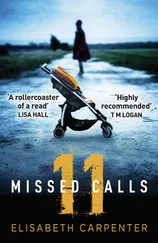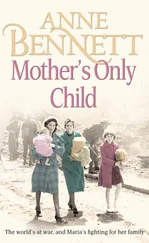Elisabeth Carpenter
ONLY A

Erica
I step outside and close my front door. Out of habit, I examine it quickly from top to bottom. My shoulders relax. The green paint is covered in tiny cracks, but there’s no writing sprayed on it today, no excrement wiped across or pushed into the keyhole. The door’s been free of graffiti for nearly eighteen months, but it won’t stay that way for long.
It was always the same words: Murderer; Get out; Scum . It was like they thought I did it. I used to wait till after dark before taking a scrubbing brush to it. There was hardly anyone around at three o’clock in the morning, and I didn’t have to be up early for anything. I still don’t – well, except for Wednesdays.
I don’t know why we settled on Wednesdays. I suppose it’s because it was my day off when I worked at the… No. There’s no point thinking about that: my other life.
The clouds are grey and heavy and it’s raining. I like it best this way; people have their heads down or under umbrellas. I open mine and catch sight of the bit of tinsel lingering in the inside corner of next door’s window; it’s been there for over a month. Don’t they know it’s unlucky? Though I don’t believe in luck. My mother used to be superstitious. No new shoes on the table, no passing anyone on the stairs. For years after she died, I imagined what she’d say to me. You can’t become a single mother, Erica! What would the neighbours think of you? Or A job in a supermarket, Erica? I pictured you doing so much more . I expect it’s for the best that she passed before my Craig was born. Then me being a single parent would’ve been the least of her worries.
I wait at the bus stop in the rain as the shelter has long since been destroyed by vandals. A car splashes me, driving through the small lake of a puddle near the kerb. I forgot to step out of the way. I need to concentrate, stop daydreaming. I’m sure drivers take great delight in drenching pedestrians these days. I try not to take it personally – not everyone knows who I am. I’m soaked to the skin, but it’ll dry on the bus. They’re always too hot when it’s raining; all the windows’ll be closed.
At last, the bus pulls in. I step on, into the sweaty warmth.
‘The bus sta—’
‘One eighty,’ the driver says.
Why is it always him? I pull the coins out of my purse one at a time, placing them slowly on the money tray. He doesn’t even look at me; he’s staring out of the window.
I grab the handles as I walk down the aisle, trying to stay upright as the bus sets off. There’s someone in my usual seat – two from the back – so I sit on one of the middle ones next to the steamed-up window. I smile a little as I picture Craig as a child, drawing silly faces in the condensation. My heart drops when I remember where I’m going. I wipe the memory from the window with the palm of my hand. I like to see outside, anyway.
I take my magazine out of my handbag and try to focus on the words. It’s one of those real-life magazines. All problems are relative . I don’t recall where I read that, but it’s true. It helps to read about other people’s lives. It’s good to feel a connection – even if it’s a distant one, like on my forum: PrisonConnect . Families of prisoners from all over the world can talk in a safe space . I’ve been on it so long, I’m a moderator now. I’ve never told Craig about it – he wouldn’t like being talked about by strangers, though he must be used to it by now.
The bus stops at the traffic lights. I look out at the bakery on the corner. It used to be the pet shop – must be nearly thirty years ago now. We’d look at the kittens and the rabbits in the window on a Saturday morning on our way to Kwik Save. Craig always felt sorry for them. ‘Can we take them all home, Mummy?’ he said, every week. ‘It’s not fair they’re stuck in there all day.’
It’s like he knew where he’d end up. I blink the memory away.
The engine idles as the pedestrians cross the road in front.
It’s then that I spot her.
I try not to look out for her; I haven’t seen her for years. She’s standing there, in the rain outside the newsagents, staring into space. Gillian Sharpe, Lucy’s mother. She’s the only parent who stayed in this town. So many names imprinted on my soul. There was another girl, Jenna. But my Craig wasn’t convicted for that. It doesn’t make sense, and I often think this, that surely the two are connected. The two happened just a week apart. If they thought he wasn’t responsible for Jenna, then why imprison him for Lucy? There’s a killer out there and they’ve not caught him. Or her; it could be a she. You never know.
What I do know is that my son would never harm anyone.
I lower my gaze; my face burns. I can’t look at Gillian Sharpe any more. When I do, I see her daughter’s face, her photo in the newspapers. I’ve kept them all, organised in date order and highlighted with the information I need to help me prove Craig’s innocence.
How old would Lucy be now?
No, no, no, no.
I pinch the skin on my wrist so hard that my nails almost meet in the middle.
I stand in line with the other relatives: the girlfriends, the wives, the friends, whatever or whoever they are. I recognise some from their clothes, their shape, but not their faces – I never look at their faces.
When I first started coming here all those years ago, a few of them muttered under their breath, called me a stuck-up bitch, but that’s stopped. I was no different from the rest of them; they soon realised that. Some even brought children with them, which is understandable – you have to maintain contact, even for the briefest of visits. But prison’s no place for kiddies. The world’s bad enough without them seeing the worst of it. Well, almost the worst.
The prison officer opens the door dead on two; never early, never late. I suppose it’s because it’s owned by the Queen. I’ve read the royal household is quite strict when it comes to time. I hand over my card and they usher me in. I give them my handbag and they place it in a locker. I hold out my arms and they pat the whole of my body. Even though I recognise them, and they know my name, my face, I must show them my passport. It’s ridiculous that I have one, really, seeing as I never get the chance to leave the country. I have so many places that I want to visit, things I want to do: see the Northern Lights; travel along Route 66 in a convertible. I read a bucket list of places in a copy of the Telegraph at the doctors’, but they didn’t mention the Lake District, which I thought was a bit short-sighted of them.
Usually, I bring Craig a paperback. I get them from the jumble sale in the church hall in the next village. I’ve been filling the bookcase on the upstairs landing at home for months. I hope Craig turns to reading when he’s home and doesn’t fill his head with notions of mixing with the wrong crowd. He can’t have made any nice friends while he’s been inside.
I won’t tell him I saw Gillian Sharpe on my way here. The first time I visited, Craig was crying, his head in his hands. ‘I’m innocent, Mum,’ he said. ‘You do believe me, don’t you?’
‘Yes, Son,’ I said. ‘Of course, I believe you.’
He doesn’t speak about it much now. It hurts him when I mention it. We’ve had to find other things to talk about since.
The guard calls my name. He lets me into the visitors’ room and Craig’s already sitting at the table waiting. He stands as he sees me – he always looks relieved. As if I’d not come.
Читать дальше
